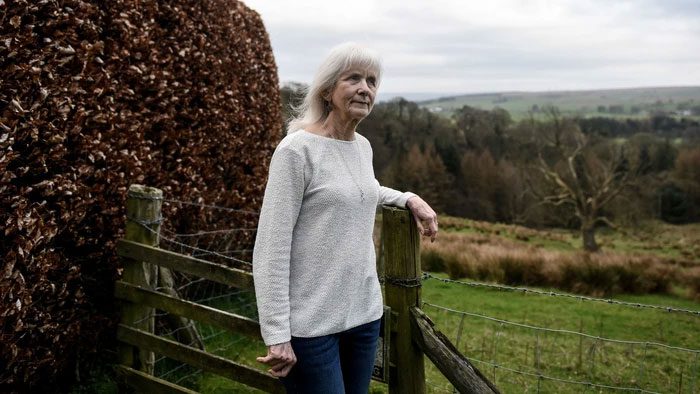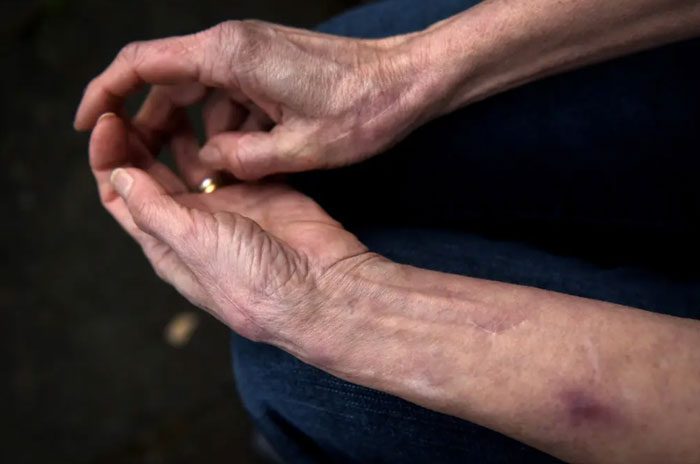Jo Cameron has never felt pain, thanks to a special genetic mutation in her body, which also accelerates wound healing.
From the moment we are young and stumble while learning to walk, we experience what pain feels like. But what if someone has never known what pain is from birth until the age of 75?
This is the story of Jo Cameron, a 75-year-old British woman. She has a rare mutation that prevents her from ever experiencing feelings of fear, anxiety, or pain. According to researchers at University College London (UCL), this mutated gene is known as FAAH-OUT.
This astonishing discovery is fully documented in the journal Brain, paving the way for new research into pain treatments and wound healing.
“I believe these findings will have significant implications for areas of research such as wound healing and depression treatment,” said Dr. Andrei Okorokov from UCL Medicine, a co-author of the study.

Jo Cameron has never felt pain.
What is the miraculous mechanism behind it?
Professor James Cox from UCL Medicine stated: “By precisely understanding what is happening at the molecular level, we can begin to comprehend the biological mechanisms involved, which could lead to the discovery of drugs that positively impact patients.”
While one might think Jo Cameron recognized her uniqueness from a young age, she admitted that it wasn’t until she was 65 that she became aware of her condition. When her medical history was examined, it was found that she had never requested pain relief medication. Even during childbirth, she did not feel pain, describing it as “quite interesting.”
In 2019, she encountered some issues related to joint degeneration and required treatment. Months later, she underwent surgery at Raigmore Hospital in Inverness, a procedure that is typically painful, yet she felt nothing. The doctors were baffled when she stated that she didn’t need any painkillers.

She only recognized her condition at 65.
Scientists discovered that the FAAH-OUT mutation “diminishes” the effects of the FAAH gene, which is associated with pain, mood, and memory. In Jo Cameron’s case, the activity level of the enzyme in the FAAH gene is significantly low. Alongside the FAAH-OUT gene, she also has certain changes in other genes such as BDNF and ACKR3.
While living without pain may be a wish for many, Cameron feels that she is missing out on many experiences in life: “Pain exists for a reason; it warns you when you’re in danger or when something is wrong, and that’s a good thing,” she told The Sun.
The mutated gene also comes with its own “side effects”, such as being quite forgetful, often losing track of her thoughts, and never experiencing “extreme excitement” like others do.
To identify danger, she has had to learn to observe cuts, burns, or recognize smells like blood or burnt meat. Her hands are filled with burns from carelessness.

Her hands are filled with burns.
Parents of children who have a similar “lack of pain” condition, like Cameron, often feel anxious. They fear their children may not recognize danger and will not learn to protect themselves. It seems that for some, the mutated gene feels more like a curse than a blessing.




















































